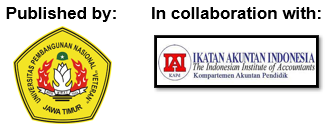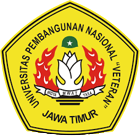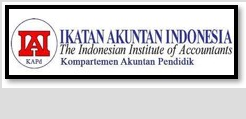Profit Sharing System in Islamic Banking Before, During, and After Covid-19 Pandemic, any Moderation?
DOI:
https://doi.org/10.33005/jasf.v8i1.569Keywords:
profit-sharing system, Non-performing financing, profitability, Islamic Banking, mudharabah and musharakahAbstract
Purpose: Explain the consistency of the implications of NPF on Profitability with Profit-sharing System of Islamic Banking through mudharabah financing and musharakah financing before, during, and after the Covid-19 pandemic.
Method: Quantitative approach is used in this study with. The number of observations is 14 Islamic banks in Indonesia. This study uses combined financial statement data time series from the Financial Services Authority (OJK) for the 2018-2024 period. The data analysis technique uses Moderating Regression Analysis (MRA) with the JAMOVI tool to further examine the contribution of NPF before, during, and after the covid-19 pandemic through Slope Analysis.
Findings: First finding explains that NPF before and after covid-19 pandemic weakened profitability through profit-sharing system with mudharabah financing, while NPF during the covid-19 pandemic did not weaken profitability. Second finding explains that NPF before and during the covid-19 pandemic did not weaken profitability, while NPF after the covid-19 pandemic weakened profitability through profit-sharing system with musharakah financing.
Novelty/Value: Originality of this study is the consistency of the implications of NPF moderation on the profitability of Islamic banks in Indonesia through profit-sharing system with different times, namely before, during, and after the Covid-19 pandemic, because there is not yet consistency in the statement of NPF's role in Islamic Banks before.
Downloads
References
Addury, M. M., & Ramadhani, A. K. P. (2024). The Influence of Financing Model and Credit Risk on Financial Stability (Study of Islamic Rural Banks in Java Island). Journal of Islamic Monetary Economics and Finance, 10(3), 427–444. https://doi.org/10.21098/jimf.v10i3.1788. https://doi.org/10.21098/jimf.v10i3.1788
Afkar, T. (2015). Analisis Daya Tahan Perbankan Syariah Dalam Krisis Keuangan Global. Universitas Airlangga : Disertasi, Universitas Airlangga. https://repository.unair.ac.id/32385/1/1.%20HALAMAN%20JUDUL.pdf
Afkar, T. (2018). Influence Analysis Of Non Performing Financing By Profit-Loss Sharing Financing Contract To The Profitability Of Islamic Commercial Bank In Indonesia. AKRUAL: Jurnal Akuntansi, 10(1), 1. https://doi.org/10.26740/jaj.v10n1.p1-14 https://doi.org/10.26740/jaj.v10n1.p1-14
Afkar, T., Chandrarin, G., & Pirmaningsih, L. (2020). Moderation of Non Performing Financing on Natural Uncertainty Contracts To The Profitability of Islamic Commercial Bank In Indonesia. International Journal of Economics, Business and Accounting Research (IJEBAR), 4(02), 330–339. https://doi.org/10.29040/ijebar.v4i02.1051 https://doi.org/10.29040/ijebar.v4i02.1051
Afkar, T., & Fauziyah. (2021). Predictions And Trends Profitability For Islamic Commercial Banks In Indonesia During The Covid-19. International Journal of Economics, Business, and Accounting Research (IJEBAR), 5(1), 188–196. https://doi.org/https://doi.org/10.29040/ijebar.v4i02.1051 https://doi.org/10.29040/ijebar.v4i02.1051
Afkar, T., & Fauziyah, F. (2023). MSMEs Recovery after the COVID-19 Pandemic through Profit-Sharing System. Jurnal Ilmu Sosial Dan Humaniora, 12(3), 547–555. https://doi.org/10.23887/jish.v12i3.67713 https://doi.org/10.23887/jish.v12i3.67713
Agustin, H., Hariswanto, H., & Bustamam, N. (2018). The Effect of Non Performing Financing Mudharabah and Musyarakah and Ownership of Banks on the Profitability of Sharia Banks. Jurnal Tabarru’: Islamic Banking and Finance, 1(2), 33–45. https://doi.org/10.25299/jtb.2018.vol1(2).2814 https://doi.org/10.25299/jtb.2018.vol1(2).2814
Ahmad Munawar, & Sulaeman. (2023). Determining the main factors of Islamic banks’ profitability in Indonesia: Does Covid-19 crisis play an important role? Asian Journal of Islamic Management (AJIM), 4(2), 138–149. https://doi.org/10.20885/ajim.vol4.iss2.art5 https://doi.org/10.20885/AJIM.vol4.iss2.art5
Alam, M. K., Tabash, M. I., Thakur, O. A., Rahman, M. M., NaimSiddiquii, M., & Hasan, S. (2023). Independence and effectiveness of Shariah department officers to ensure Shariah compliance : evidence from Islamic banks in Bangladesh. Asian Journal of Accounting Research, 8(1), 15–26. https://doi.org/10.1108/AJAR-01-2022-0022 https://doi.org/10.1108/AJAR-01-2022-0022
Ali, N. M., Alias, F., Shah, H. A. R., Awang, M. N., & Abu-mounes, R. (2024). The conceptual nexus between Islamic foresight, Islamic thought and the shariah. Malaysian Journal of Syariah and Law, 12(1), 62–76. https://doi.org/https://doi.org/10.33102/mjsl.vol12no1.524 https://doi.org/10.33102/mjsl.vol12no1.524
Amin, M. R., Alam, G. M. M., Parvin, M. T., & Acharjee, D. C. (2023). Impact of COVID-19 on poultry market in Bangladesh. Heliyon, 9(2), e13443. https://doi.org/10.1016/j.heliyon.2023.e13443 https://www.sciencedirect.com/science/article/pii/S2405844023006503
Aminarti, N., & Firdaus, R. (2024). Implementasi Akuntansi Syariah pada Sistem Bagi Hasil Pembiayaan Mudharabah dalam Praktik Keuangan Modern. Jurnal Penelitian Ilmu Ekonomi Dan Keuangan Syariah, 2(4), 128–138. https://doi.org/https://doi.org/10.59059/jupiekes.v2i4.1730 https://doi.org/10.59059/jupiekes.v2i4.1730
Anis, I., Gani, L., Fauzi, H., Hermawan, A. A., & Adhariani, D. (2023). The sustainability awareness of banking institutions in Indonesia, its implication on profitability by the mediating role of operational efficiency. Asian Journal of Accounting Research, 8(4), 356–372. https://doi.org/10.1108/AJAR-06-2022-0179 https://doi.org/10.1108/AJAR-06-2022-0179
Asiyah, B. N., Nasir, M. R., & Ahsan, M. (2019). Islamic Prudential Banking Concept to Reduce Non Performing Financing: Literature Review. Iqtishadia, 12(2), 173–188. https://doi.org/10.21043/iqtishadia.v12i2.5641 https://journal.iainkudus.ac.id/index.php/IQTISHADIA/article/view/5641
Bahri, S. (2022). Pengaruh pembiayaan murabahah, mudharabah, dan musyarakah terhadap profitabilitas. JAS : Jurnal Akuntansi Syariah, 6(1), 15–27. https://doi.org/https://doi.org/10.46367/jas.v6i1.502 https://doi.org/10.46367/jas.v6i1.502
Bashori, A., Umami, K., & Wahid, S. H. (2024). Maqasid shariah-based digital economy model: integration, sustainability and transformation. Malaysian Journal of Syariah and Law, 12(2), 405–425. https://doi.org/https://doi.org/10.33102/mjsl.vol12no2.647 https://doi.org/10.33102/mjsl.vol12no2.647
Belesis, N. D., Kampouris, C. G., & Karagiorgos, A. T. (2022). The Effect of COVID-19 on the Value Relevance of European Firms’ Financial Statements. International Journal of Applied Economics, Finance and Accounting, 14(1), 91–911. https://doi.org/10.33094/ijaefa.v14i1.661 https://doi.org/10.33094/ijaefa.v14i1.661
Boubaker, S., Le, T. D. Q., & Ngo, T. (2023). Managing bank performance under COVID-19: A novel inverse DEA efficiency approach. International Transactions in Operational Research, 30(5), 2436–2452. https://doi.org/10.1111/itor.13132 https://doi.org/10.1111/itor.13132
Dalimunthe, H. (2018). Pengaruh Marjin Laba Bersih, Pengembalian Atas Ekuitas, Dan Inflasi Terhadap Harga Saham. JURNAL AKUNTANSI DAN BISNIS : Jurnal Program Studi Akuntansi, 4(2), 62. https://doi.org/10.31289/jab.v4i2.1780 https://doi.org/10.31289/jab.v4i2.1780
Demirgüç-Kunt, A., Pedraza, A., & Ruiz-Ortega, C. (2021). Banking sector performance during the COVID-19 crisis. Journal of Banking and Finance, 133(16035), 1–22. https://doi.org/10.1016/j.jbankfin.2021.106305 https://www.sciencedirect.com/science/article/pii/S0378426621002570?via%3Dihub
Djawas, M., Sugirman, A., Ali, B., Affan, M., & Idham. (2023). The Position of Non-Muslims in the Implementation of Islamic Law in Aceh , Indonesia. AHKAM : Jurnal Ilmu Syariah, 23(1), 95–120. https://doi.org/10.15408/ajis.v23i1.32127 https://journal.uinjkt.ac.id/index.php/ahkam/article/view/32127
Fakhrunnas, F., Astuti, R. D., & Anto, M. B. H. (2022). Determinants of non- performing financing in Indonesian Islamic banks : A regional and sectoral analysis. Banks and Bank Systems, 17(4), 72–86. https://doi.org/10.21511/bbs.17(4).2022.07 http://dx.doi.org/10.21511/bbs.17(4).2022.07
Fitriyanti, A. N., & Arfiansyah, M. A. (2023). Impact of Financing Restructuring And Foreclosed Collateral on Non-Performing Financing Levels In The Covid-19 Era. IQTISHADUNA: Jurnal Ilmiah Ekonomi Kita, 12(2), 183–196. https://doi.org/10.46367/iqtishaduna.v12i2.1405
Hakim, M. L. (2023). Financial Technology Strategy for Islamic Banking Competitiveness. AL-ARBAH: Journal of Islamic Finance and Banking, 5(1), 99–104. https://doi.org/10.21580/al-arbah.2023.5.1.17998 https://doi.org/10.21580/al-arbah.2023.5.1.17998
Hanafi, S. M. (2021). The Contribution of Profit-sharing Characteristics to the Performance of Islamic Banks. Shirkah: Journal of Economics and Business, 6(1), 52–65. https://doi.org/http://dx.doi.org/10.22515/shirkah.v6i1.378 https://doi.org/10.22515/shirkah.v6i1.378
Herawati, A., Zainuddin, & Raehana, S. (2024). Islamic Economic Law Perspectives of Profit-Sharing Systems (Teseng) in The Cultivation of Rice Fields in Bugis-Makassar Community, South Sulawesi, Indonesia. Manchester Journal of Transnational Islamic Law & Practice, 20(1), 280–287. https://www.electronicpublications.org/stuff/1057
Hidayat, N. W., Wardini, A. K., & Wati, L. N. (2021). Determining The Performance of Sharia Commercial Banks With Moderation of Non Performing Financing Ratio In Indonesia. Riset : Jurnal Aplikasi Ekonomi, Akuntansi Dan Bisnis, 3(2), 563–580. https://doi.org/https://doi.org/10.37641/riset.v3i2.92 https://doi.org/https://doi.org/10.37641/riset.v3i2.92
Horváth, B., Khilji, T., Gankhuyag, U., Meng, T., Canossa, di V., Chen, J., & Rong, S. (2020). Social and Economic Impact of Covid-19 in the Asia-Pacific Region. United Nations Development Programme, April, 1–33. https://covidasia.hypotheses.org/3440
Indrastomo, B. S. (2023). Understanding The Historical Emergence of Islamic Finance In Indonesia : An Institutional And Social Movement Perspetive. Qudus International Journal of Islamic Studies, 11(1), 103–148. https://doi.org/http://dx.doi.org/10.21043/qijis.v11i1.16431 http://dx.doi.org/10.21043/qijis.v11i1.16431
Kamaruzaman, N. H. (2023). Responsibilities of Customers And Islamic Banks to Manage and Recover Non-Performing Financing. IJIEFER : International Journal of Islamic Economic and Finance Research, 5(2), 91–102. https://doi.org/https://doi.org/10.53840/ijiefer117 https://doi.org/10.53840/ijiefer117
Karim, A. A. (2020). Perbankan Islam Analisis Fiqih dan Keuangan. Jakarta : PT. Raja Grafindo Persada.
Koutoupis, A. G., Belesis, N. D., & Kampouris, C. G. (2022). Did COVID-19 Affect the Financial Performance and Risk of International Shipping Companies? International Journal of Applied Economics, Finance and Accounting, 13(2), 69–81. https://doi.org/10.33094/ijaefa.v13i2.623 https://doi.org/10.33094/ijaefa.v13i2.623
Kusmayadi, D., Firmansyah, I., & Badruzaman, J. (2017). the Impact of Macroeconomic on Nonperforming Loan: Comparison Study At Conventional and Islamic Banking. Iqtishadia, 10(2), 60–82. https://doi.org/10.21043/iqtishadia.v10i2.2864 https://journal.iainkudus.ac.id/index.php/IQTISHADIA/article/view/Dedi%20Kusmayadi%2C%20Firmansyah%2C%20Jajang%20Badruzaman
Lestari, R. S., & Anwar, S. (2021). Peran Moderasi Non Performing Financing Terhadap Pembiayaan Mudharabah, Musyarakah, dan Profit Sharing Ratio Pada Profitabilitas Bank Umum Syariah. JAS : Jurnal Akuntansi Syariah, 5(2), 95–109. https://doi.org/10.46367/jas.v5i2.374
Lubis, D. S., Hilmi, & Hismendi. (2024). The Influence of Non-performing Financing and Financing to Deposit Ratio on Profitability in Sharia Commercial Banks in Indonesia. International Journal of Scientific Research and Management (IJSRM), 12(9), 7355–7368. https://doi.org/10.18535/ijsrm/v12i09.em03 https://doi.org/10.18535/ijsrm/v12i09.em03
Maghfirah. (2022). Phenomenology Approach In Islamic Economics and Finance. Malaysian Journal of Syariah and Law, 10(1), 11–22. https://doi.org/https://doi.org/10.33102/mjsl.vol10no1.300 https://doi.org/10.33102/mjsl.vol10no1.300
Maity, S., & Sahu, T. N. (2022). How far the Indian banking sectors Indian are efficient?: An empirical investigation. Asian Journal of Accounting Research, 6(3), 413–431. https://doi.org/10.1108/AJEB-02-2021-0016 https://doi.org/10.1108/AJEB-02-2021-0016
Majalis, N., Mulyany, R., & Zuhri, Z. H. (2021). Pricing the Equity-Based Financing of Mudharabah: Insights into its Drivers. Iqtishadia, 14(2), 219–234. https://doi.org/10.21043/iqtishadia.v14i2.9204 https://doi.org/10.21043/iqtishadia.v14i2.9204
Maksum, M., & Hidayah, N. (2023). The Mechanism of Avoiding Riba in Islamic Financial Institutions: Experiences of Indonesia and Malaysia. JURIS : Jurnal Ilmiah Syariah, 22(2), 235–244. https://doi.org/http://dx.doi.org/10.31958/juris.v22i2.6952 http://dx.doi.org/10.31958/juris.v22i2.6952
Maryani, M., Rusydi, Arjuniadi, Agussalim, M., & Yanti, E. M. (2024). Examining the Effect of Third-Party Funding and Non-Performing Loan on Syariah Banking Financing : Moderating Role of Profitability. International Journal of Finance, Economics and Business, 3(1), 1–9. https://doi.org/10.56225/ijfeb.v3i1.197 https://doi.org/10.56225/ijfeb.v3i1.197
Maulana, M., Ramly, A., & Filzah, N. (2024). The Shared Values of Sharia Banking : Non-Muslims Under The Qanun on Islamic Financial Institutons in Aceh. AHKAM : Jurnal Ilmu Syariah, 24(1), 185–198. https://doi.org/10.15408/ajis.v24i1.39188 https://doi.org/10.15408/ajis.v24i1.39188
McAleer, M. (2020). Prevention Is Better Than the Cure: Risk Management of COVID-19. Journal of Risk and Financial Management, 13(3), 46. https://doi.org/10.3390/jrfm13030046 https://doi.org/10.3390/jrfm13030046
Muksal. (2018). The Impact of Non-Performing Financing (NPF) to Profitability (Return On Equity) at Sharia Bank in Indonesia. EJIF:Europian Journal of Islamic Finance, 11(3). https://doi.org/10.13135/2421-2172/2739 https://doi.org/10.13135/2421-2172/2739
Muqorobin, A., & Kurniawan, C. S. (2022). Installment sale: its contemporary application in islamic banking finance (case study brunei darussalam). Malaysian Journal of Syariah and Law, 10(1), 1–10. https://doi.org/https://doi.org/10.33102/mjsl.vol10no1.268 https://doi.org/10.33102/mjsl.vol10no1.268
Musfiroh, M. F. S., Miftakhussurur, M. Q., Kaukab, M. E., Sabrina, L., Hartiyah, S., & Nugroho, A. F. (2024). Implementation of The Minimum Investment Return System on The Profit Sharing of Mudarabah Financing : A Contemporary Muamalah Fiqh Perspective FINANCING : A CONTEMPORARY MUAMALAH FIQH. Jurnal Ulwan, 9(1), 178–187. https://unimel.edu.my/journal/index.php/JULWAN/article/view/1694
Muthoifin, Firdaus, N., Sukisno, Anwar, S., Ulum, M. N., Irchamni, A., Widodo, & Murtyaningsih, R. (2024). Profit-Sharing Practices To Increase Profits and Development of Indonesian Sharia Banking. Revista de Gestao Social e Ambiental, 18(6), 1–17. https://doi.org/https://doi.org/10.24857/rgsa.v18n6-005 https://doi.org/10.24857/rgsa.v18n6-005
Nasir, M. S., Oktaviani, Y., & Andriyani, N. (2022). Determinants of Non-Performing Loans and Non-Performing Financing level : Evidence in Indonesia 2008-2021. Banks and Bank Systems, 17(4), 116–128. https://doi.org/10.21511/bbs.17(4).2022.10 https://doi.org/10.21511/bbs.17(4).2022.10
Nasokha, F., & Yudiana, F. E. (2022). Determination of Profitability with Non-Performing Financing as Moderation. JAS : Jurnal Akuntansi Syariah, 6(2), 152–169. https://doi.org/https://doi.org/10.46367/jas.v6i2.628 https://doi.org/10.46367/jas.v6i2.628
Nazwa, P. ., & Hasbi, M. Z. N. (2021). Akad Musyarakah dan Penerapan dalam Manajemen Perbankan Syariah. Indonesian Journal Of Managemen and Accounting, 2(2), 108–118. https://doi.org/http://dx.doi.org/10.21927/ijma https://ejournal.almaata.ac.id/index.php/IJMA/article/view/3313
Rahadi, D. I., & Farid, M. M. (2021). Analisis Variabel Moderating. CV. Lentera Ilmu Mandiri. https://www.researchgate.net/publication/354521951_ANALISIS_VARIABEL_MODERATING#fullTextFileContent https://www.researchgate.net/publication/354521951_ANALISIS_VARIABEL_MODERATING#fullTextFileContent
Riani, R., & Ikhwan, I. (2022). The impact of Covid-19 on the banking industry efficiency: Comparison between Indonesia and Malaysian banks. Asian Journal of Islamic Management (AJIM), 4(1), 43–58. https://doi.org/10.20885/ajim.vol4.iss1.art4 https://doi.org/10.20885/AJIM.vol4.iss1.art4
Rufaida, E. R. (2024). Profit and Loss Sharing : Concepts in Islamic Perspective and Sharia Banking Theory. Abdurrauf Social Science, 1(2), 126–144. https://doi.org/10.70742/arsos.v1i2.36
Santoso, M. H., Siregar, H., Hakim, D. B., & Siregar, M. E. (2019). Strategy for Non-Performing Financing Management in Sharia Banks Based on Economic Sector of Financing. Open Journal of Business and Management, 07(02), 374–385. https://doi.org/https://doi.org/10.4236/ojbm.2019.72025 https://doi.org/10.4236/ojbm.2019.72025
Sanurdi. (2019). Teori Percampuran dan Pertukaran. Tasamuh : Jurnal Studi Islam, 11(1), 71–85. https://doi.org/https://doi.org/10.47945/tasamuh.v11i1.173 https://doi.org/10.47945/tasamuh.v11i1.173
Saputro, T. A., Rumadan, I., Suwadi, P., Latifah, E., & Syaiful, Mu. (2024). The Urgency of Using al-Milk an-Naqiṣ in Geographical Indications: An Ideal Preservation for Intellectual Property in Indonesia. JURIS : Jurnal Ilmiah Syariah, 23(2), 269–279. https://doi.org/10.31958/juris.v23i2.12227 https://doi.org/10.31958/juris.v23i2.12227
Sari, A. P. N., & Maharani. (2022). The Effect of Murabahah , Musyarakah , And Ijarah Financing on Profitability With Non-Performing Financing as A Moderation Variable In Islamic Commercial Banks For The 2016-2020 Period. CASHFLOW : CURRENT ADVANCED RESEARCH ON SHARIA FINANCE AND ECONOMIC WORLDWIDE, 1(4), 151–168. https://doi.org/https://doi.org/10.55047/cashflow.v1i4.316 https://doi.org/10.55047/cashflow.v1i4.316
Shawaqfeh, G. N., Houl, M. A. A. Al, & Alomari, K. F. (2024). The Impact of Financial Technology on returns of shares for Jordanian Islamic Banks. International Journal of Religion, 5(10), 3336–3349. https://doi.org/10.61707/ynvjyg73 https://doi.org/10.61707/ynvjyg73
Shonhadji, N. (2020). What most influence on non-performing loan in indonesia? bank accounting perspective with mars analysis. JASF : Journal of Accounting and Strategic Finance, 3(2), 136–153. https://doi.org/https://doi.org/10.33005/jasf.v3i2.85 https://doi.org/10.33005/jasf.v3i2.85
Solimun, Fernandes, A. A. R., & Nurjanah. (2017). Metode Statistika Multivariat : Pemodelan Persamaan Struktural (SEM) Pendekatan WarpPLS. Universitas Brawijaya Press.
Stalia, S., Sunarsih, U., Mustika, M., & Ardheta, P. A. (2024). The Effect of Macro-indicators, Profit Sharing on Mudharabah Deposits: Evidence from Indonesia. Research of Islamic Economics, 1(2), 96–105. https://doi.org/10.58777/rie.v1i2.173 https://doi.org/10.58777/rie.v1i2.173
Tarmizi, N. M., Buang, A. H., Daud, M. Z., Malaya, U., Persekutuan, W., & Lumpur, K. (2024). Predefined shariah requirements in core banking system: a qualitative study on muḍārabah and mushārakah contracts. Malaysian Accounting Review, 12(1), 43–61. https://doi.org/https://doi.org/10.33102/mjsl.vol12no1.474 https://doi.org/10.33102/mjsl.vol12no1.474
Wahidah, T. N., Asnaini, & Makmur. (2024). Application of the Mudharabah Agreement in the Profit Sharing System for Raising Cattle (Study in Penago II Village , Ilir Talo District, Seluma Regency). Sharia Economic Management Business Journal, 5(1), 22–27. https://doi.org/10.62159/sembj.v5i1.1207
Wibisono, A., Siregar, H., Ismal, R., Ratnawati, N., & Ismail, A. F. (2024). Revisiting Mudharabah Investment Account and Proposal for Improvement – Case of Indonesia. Al-Muzara’ah, 12(2), 195–216. https://doi.org/10.29244/jam.12.2.195-216 https://doi.org/10.29244/jam.12.2.195-216
Widarjono, A., & Rudatin, A. (2021). The Determinants of Indonesian Islamic Rural Banks’ Non-Performing Financing. Global Review of Islamic Economics and Business, 9(1), 29–41. https://doi.org/10.14421/grieb.2021.091-03
Zuoby, S. M. A. Al, & Mas’ad, M. A. (2022). Financing Methods Through Musharakah Contract To Reduce Risks: Jordan Islamic Bank As A Model. Malaysian Journal of Syariah and Law, 10(2), 83–98. https://doi.org/https://doi.org/10.33102/mjsl.vol10no2.398 https://doi.org/10.33102/mjsl.vol10no2.398














